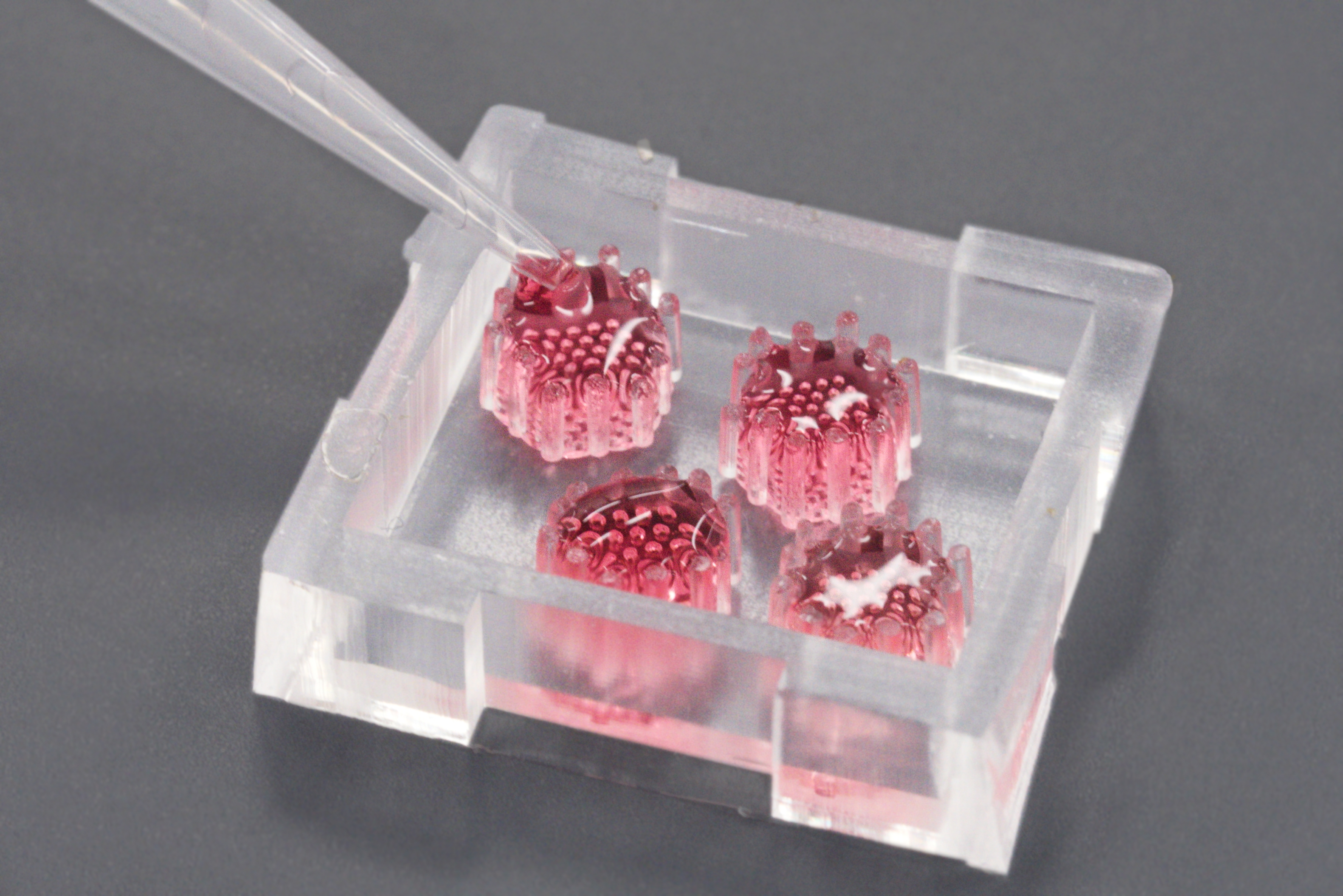For their model, they used human pluripotent stem cells, which they reprogrammed into pancreatic ductal cells (cells of the organ's excretory duct). The researchers were able to develop a mature organoid with important key physiological features of a pancreas, including secretion of extracellular matrix components and intercellular communication.

Pancreatic organoids on newly developed chip platform
© Helmholtz Zentrum München / Matthias Meier
The goal is, on the one hand, to be able to understand the development of this important organ. On the other hand, they want to understand the development of pancreatic cancer, which is important for identifying reliable biomarkers as new diagnostic tools. This is because pancreatic cancer has a poor prognosis: the probability of living longer than five years with the disease would be only eight percent, the Helmholtz Zentrum München said.
Original publication:
Wiedenmann, S., Breunig, M., Merkle, J. et al (2021). Single-cell-resolved differentiation of human induced pluripotent stem cells into pancreatic duct-like organoids on a microwell chip. Nature Biomedical Engineering. https://doi.org/10.1038/s41551-021-00757-2
Sorce and more information:
https://www.pioneercampus.org/themenmenue-rechts/news/news/article/28786/index.html




 Dr. rer. nat.
Dr. rer. nat. Menschen für Tierrechte - Tierversuchsgegner Rheinland-Pfalz e.V.
Menschen für Tierrechte - Tierversuchsgegner Rheinland-Pfalz e.V.